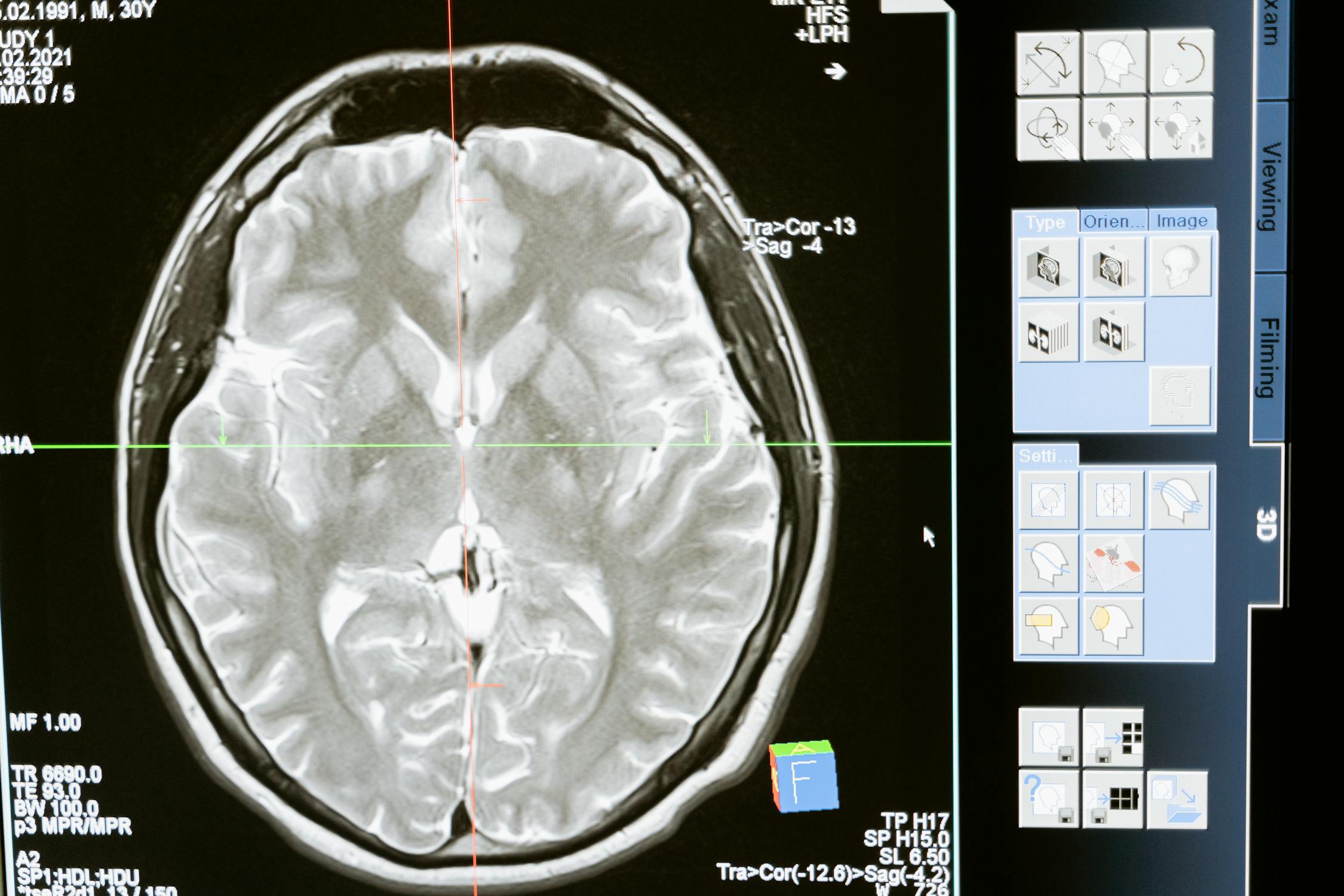Cognitive health is an essential element of daily life. Cognitive health can be a key component of the brain's overall health. Recent evidence suggests the following steps may be linked to mental well-being. Small changes can be very helpful in functioning well. Using healthy lifestyles and exercise can help reduce risk for Alzheimer's.

Take Care of Your Physical Health
While the cognitive system functions primarily related to mental processes, it is true that taking care of your physical health can have a significant impact on cognitive function. Here are some ways in which physical health can influence cognitive functions:
1. Brain Health: Engaging in regular physical exercise and maintaining a healthy lifestyle can promote brain health. Exercise increases blood flow to the brain, which can improve cognitive function, memory, and overall brain health. Additionally, a balanced diet rich in nutrients, including omega-3 fatty acids, antioxidants, and vitamins, can support brain function and reduce the risk of cognitive decline.
2. Energy and Alertness: Physical health affects energy levels and overall alertness, both of which can impact cognitive functions. Regular exercise, sufficient sleep, and a healthy diet can contribute to improved energy levels, mental clarity, and sustained attention.
3. Stress Reduction: Physical activity and maintaining a healthy lifestyle can help manage stress levels and cognitive dysfunction. High levels of stress can impair cognitive functions such as attention, memory, and decision-making. Engaging in stress-reducing activities like exercise, relaxation techniques, and adequate sleep can support cognitive function.
4. Mood and Mental Well-being: Physical health and mental health are interconnected. Regular exercise has been shown to release endorphins, which are natural mood-boosting chemicals in the brain. By improving mental well-being, exercise and physical activity can positively influence cognitive functions such as attention, memory, and motivation.
5. Disease Prevention: Maintaining a healthy lifestyle can reduce the risk of chronic diseases such as cardiovascular disease, diabetes, and obesity. These conditions have been associated with an increased risk of cognitive decline and other cognitive impairment itself. By preventing or managing these diseases, you can potentially protect cognitive functions in the long run.
It's important to note that while physical health can positively influence cognitive functions, there are other factors such as genetics, age, and environmental factors that also play a role. It's best to adopt a holistic approach to health, addressing both physical and mental well-being, to support optimal cognitive function.
What role does cognition have?
Cognition is rooted in physical structures within our brain, and is present in a healthy and well functioning brain. Each can contain as many as 1 million connections to other nerve cells called neurons. It is very complex and complicated. When trying to understand the human brain, some people use simplified scientific theories, many have been built on studies on rats or nonhuman animals. These studies help to understand a certain part of our brain, like language, and they have also led to many breakthrough therapies for commonly encountered brain problems like dementia.
How it affects us and why it is important
Cognitive processes adapt rapidly to new information and govern behavior throughout a lifetime and are influenced by both environmental and genetic influences. This environmental condition can even start before pregnancy, e.g fetal alcohol syndrome, which causes significant cognitive declines. In the early years of our lives we have developed our cognitive functions and as we enter adulthood some of this function begins to decline when a number of neurons die.
Manage Stress
Stress occurs in our lives. Short-term stress can even stimulate thinking and inspire the need for action. In the past, chronic stress has been shown to affect the brain, affect memory and increase the chances and complications of Alzheimer disease. To get rid of stress you must find a number of ways.
Be Physically Active
Physical activity through daily physical exercises and other activities is beneficial for health. This may make you more aware that research suggests a strong correlation between active physical activity and Alzheimer disease prevention. The brain is able retain the old networks that are critical for cognitive health through exercise. Studies also suggest exercise increases the size of a neural structure important for learning and working memory, which results in more spatial memory.
Cognitive functioning
A key part of the pretransmission evaluations for psychiatric patients is their cognitive function. Depending on the patient and the type of healthcare provider, if there is a medical condition affecting the patient's health the patient may be impacted by a number of factors including the diagnosis and treatment, previous traumatic brain injury or injuries, and demographic factors such as ages and education.
Cognitive domains and neuropsychological tests
Is depression related to cognitive functioning and structural and functional brain findings?
The Brain
Everything we say or do affects our mental and emotional system. All our acts are a product of electrical signals between brain cells and the nerves that are transmitted. Humans are estimated to have more than 100 million neurons. Approximately 5 to 10 glial cells exist within each neuron that interact and control neurons' activity. Neurones generally consist of four major components: 1) a tissue, (2) a dendrite, (3) one axon, and (4) an axon terminal.
What are executive functions?
The Executive Function is an incredibly complex process of cognitive development that helps plan and guide the behavior that requires adaptation to environments and to achieve goals (Bauermeister 2008). Executive functions are skills necessary in daily life. Planing : the ability to set and execute goals in order (sequences of steps) and select appropriate ones according to age related to anticipating consequences. Reasoning: Ability to compare and infer.

Eat Healthy Foods
Dietary habits and lifestyles are important in managing chronic conditions including cardiovascular disease and diabetes. This could be beneficial for brain health as well. A typical healthy diet includes fruit and vegetables; whole grain, lean meat, seafood and poultry; and low-fat dairy products. Likewise you need to restrict the consumption of fats solids. Always take proper measurements and take adequate amount of water. Scientists say that eating healthy food may reduce the chance for Alzheimers disease. Those eating Mediterranean foods are more prone to Alzheimer's than others.
Social engagement and cognitive decline
Preserving cognitive function can assist older adults in maintaining healthy, active, and independent lives. Many everyday life activities are complex cognitive processes. Therefore, a clearer understanding of social engagement's protective effect mild cognitive impairment will be vital in designing strategies to address cognitive decline in older adults.
What are the most important cognitive functions?
The main cognitive functions include attention orientation, memories, diagnosis, executive function, practice, languages, social knowledge or visuopatial skills.
When do cognitive functions start to deteriorate?
Cognitive deficits are caused by normal aging processes. How people age and how they experience these processes are impacted as well as their function and physical abilities. Other factors can affect cognitive abilities, including neurodegenerative disease, age related cognitive decline, disability, and mental illnesses. The occurrence or chronic occurrence of a brain injury may be linked to a number of factors such as alcohol and drug abuse.
Physical and Mental Health Problems
Many diseases affect a person's mind which can affect cognition but also affects other cognitive functions too. This condition includes: It is necessary to treat this illness. It affects both your brain and your body. It is important to take medication to treat any other health condition.
Social Cognition
Cognitive and emotional systems are the basis for understanding, analysis and remembering about our social life. It refers to the way we view ourselves as people who are in a different situation. Continue reading on Behavioral, Social, and Cognitive Disorder.
What is poor cognitive performance?
Cognitive impairments occur in those individuals who are unable to remember, understand the meaning of things, concentrate or make decisions in their daily lives. Cognitive problems can occur in mild or severe forms.
How do you measure cognitive performance?
Common test methods include the Montreal cognitive assessments (MCA). Testing takes 15 minutes. In addition, he memorizes a few sentences by copying drawings or drawings, looking up pictures of animals and telling them what animal.

Stay Connected with Social Activities
Connecting to others through social activities or community programs may help stimulate the mind and reduce isolation. Participation in social activities is beneficial to health and improves health. Those who actively participate in meaningful personal work with other people have long-term positive health and motivation. Research has shown that such activity can enhance the mental and physical well being of people, and increase the cognitive functions of them. Come to your friend or family. Take advantage of volunteer opportunities in local groups, or join one with a hobby that interests you the best.
Lack of Physical Activity
A lack of exercise can lead to diabetes and stroke, as well depression. Several observational studies also indicate the positive effects of exercise on brain health on cognitive function and decreased risk of dementia. It is generally recognized that being active reduces risk and improves memory function.
Reduce Risks to Cognitive Health
The genetics of environmental and lifestyle influences cognitive function. This may be a cause of a decline in mental and cognitive ability used to do everyday tasks. Genetic traits pass down from one family to one child and cannot be monitored. Many factors such as lifestyle or environmental changes may help you decrease your risk.
Sleep Problems
In all people, good sleep promotes good brain function. Sleep disorders can cause memory loss in the elderly.
What do we use cognitive functions for?
Cognitive functions refer to various mental processes that enable us to perceive, understand, remember, reason, solve problems, make decisions, and engage in other cognitive activities. These functions are essential for our daily functioning and enable us to interact with the world around us. Here are some key uses and applications of different cognitive abilities and functions:
1. Perception: Cognitive functions allow us to interpret sensory information from our environment, such as seeing, hearing, smelling, tasting, and touching. Perception helps us make sense of the world and understand what is happening around us.
2. Learning and Memory: Cognitive functions play a crucial role in acquiring new knowledge, storing it in memory, and retrieving it when needed. These two brain functions enable us to learn new skills, remember facts and events, and build on our existing knowledge.
3. Attention and Focus: Cognitive functions help us selectively attend to specific stimuli or tasks while filtering out distractions. Attention and focus are crucial for concentration, effective information processing, and task completion.
4. Language and Communication: Cognitive functions underlie our ability to comprehend and use language. They enable us to understand spoken and written words, express ourselves verbally and in writing, and communicate effectively with others.
5. Problem Solving and Reasoning: Cognitive functions facilitate logical thinking, problem-solving, and reasoning abilities. They help us analyze information, identify patterns, make connections, and arrive at solutions to complex problems.
6. Decision Making: Cognitive functions assist us in making choices and decisions based on available information, preferences, and goals. They involve weighing options, considering potential outcomes, and evaluating risks and benefits.
7. Creativity and Innovation: Cognitive functions contribute to creative thinking, imagination, and innovation. They enable us to generate novel ideas, think outside the box, and approach challenges from different perspectives.
8. Executive Functions: These higher-level cognitive functions of executive functioning include planning, organizing, prioritizing, managing time, self-control, and goal-directed behavior. Executive functions help us set and achieve goals, regulate our behavior, and make adaptive decisions.
Overall, cognitive functions are fundamental to our cognitive abilities and are involved in almost every aspect of our lives, from basic visual perception, to complex problem-solving. They shape how we interact with the world, learn new things, communicate, and navigate our daily tasks and challenges.











